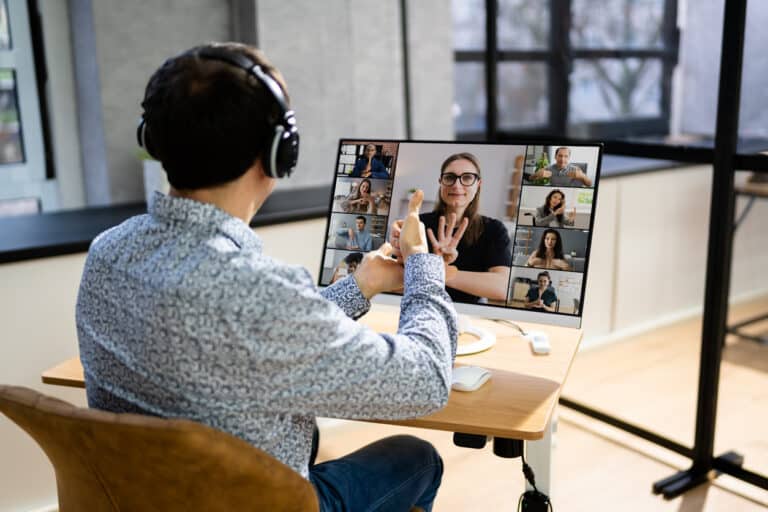Living with hearing loss can turn everyday activities and public interactions into slight hurdles. Whether it’s engaging in a conversation or simply understanding an announcement, hearing loss can hinder a person’s ability to fully comprehend.
The Americans with Disabilities Act (ADA) seeks to alleviate these challenges by requiring government entities, businesses and various public organizations to communicate effectively with individuals who have hearing loss. The ADA aims to guarantee that people who have hearing loss and those who don’t have equal access to messaging. These accommodations could appear as follows:
Educational Adjustments

Schools play a crucial role in accommodating students with hearing loss to grant them the same educational access as their peers. These adjustments might involve:
- Assistive listening devices: Equipment that improves sound clarity by sending audio directly from the source to the student.
- Real-time captioning: This provides a live textual representation of spoken dialogue and sounds during videos and presentations.
- Sign language interpretation: This service offers sign language translation for students who’ll use it.
Adaptations in the Workplace
Employers are included among those who must create an inclusive environment for those with hearing loss. These measures not only meet legal standards but also foster a diverse and efficient team. Workplace accommodations can consist of:
- Visual alert systems: These are systems that use lights to signal emergencies and are helpful for individuals who are unable to hear alarms.
- Text-based communication: It’s useful to incorporate email and chat platforms to facilitate communication for all employees.
- Flexible work settings: Tailoring work locations or schedules to manage acoustic environments or allowing breaks to minimize listening fatigue can help those with hearing loss perform optimally.
Public Spaces
Facilities such as transit hubs, retail establishments and art and community centers have taken steps to become more accessible. Such accommodations include:
- Visual signals in public transportation hubs and digital displays of stops to complement auditory announcements.
- Captioned or sign-language-interpreted guided tours in locations like Houston Art and History Museum, which enable visitors with hearing loss to fully enjoy exhibits.
- Textual customer service options in stores to aid with inquiries and transactions.
If you don’t know of accommodations offered to those with hearing loss or need a specific accommodation, talk with your local organization. Additionally, a hearing specialist can help equip you to address hearing loss in your daily life. Hearing aids are a great tool for reconnecting you with others.
For expert advice and assistance, contact Hearing Systems to schedule a hearing test today.
